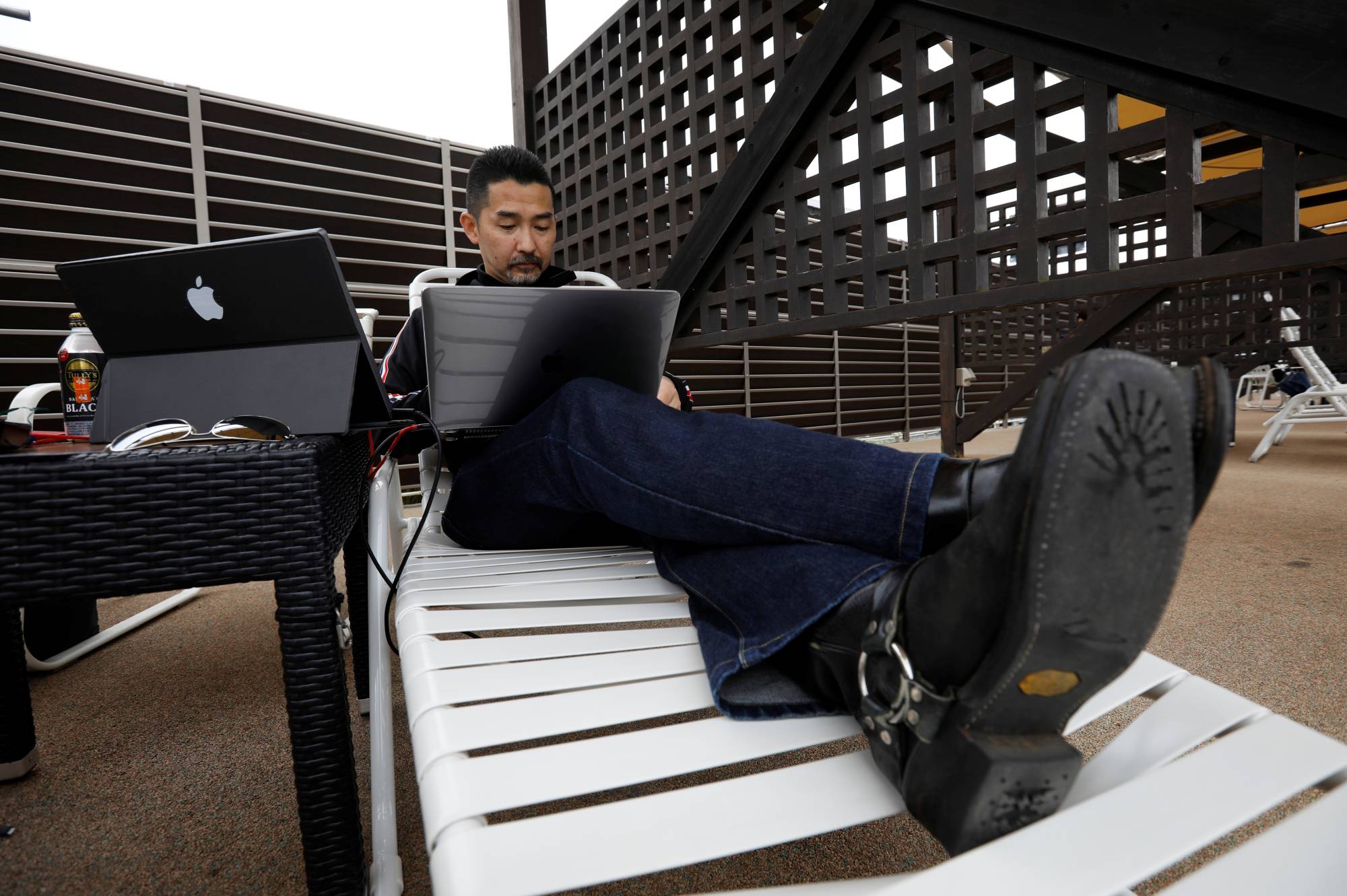The so-called workation was hailed as a panacea for Japan’s coronavirus-hit tourism sector and corporate culture of overwork when the idea was catapulted into the public’s consciousness in 2020.
A portmanteau of “work” and “vacation,” the practice of temporarily relocating to a desirable destination while continuing work responsibilities had been in play as early as 2017 — albeit by only a few companies and municipalities — but remained largely unknown across the country.
With the outbreak of the pandemic and subsequent promotion of telework to limit the spread of infections, government officials said greater implementation of workations could support travel-related businesses feeling economic pain from the sudden loss of inbound visitors. Although workation participants typically work as usual on weekdays, perhaps in their accommodation or a nearby internet cafe, they would spend evenings and weekends exploring the local area or visiting tourist attractions, thereby increasing consumption.


















With your current subscription plan you can comment on stories. However, before writing your first comment, please create a display name in the Profile section of your subscriber account page.